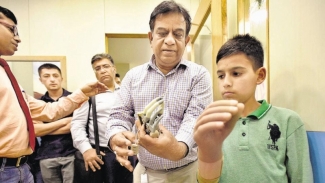
The Payment of Gratuity (Amendment) Bill, 2018 has been passed by parliament on Thursday.The bill ensures harmony among employees in the private sector and Public Sector Undertakings/Autonomous Organizations under Government who are not covered under CCS (Pension) Rules. These employees will be entitled to receive higher amount of gratuity at par with their counterparts in Government sector. The bill was passed by the Rajya Sabha today and the Lok Sabha on 15th March, 2018.
The Payment of Gratuity Act, 1972 applies to establishments employing 10 or more persons. The main purpose for enacting this Act is to provide social security to workman after retirement, whether retirement is a result of superannuation, or physical disablement or impairment of vital part of the body.
The present upper ceiling on gratuity amount under the Act is Rs. 10 Lakh. The provisions for Central Government employees under Central Civil Services (Pension) Rules, 1972 with regard to gratuity are also similar. Before implementation of 7th Central Pay Commission, the ceiling under CCS (Pension) Rules, 1972 was Rs. 10 lakh. However, with implementation of 7th Central Pay Commission, in case of Government servants, the ceiling has been raised to Rs. 20 lakhs.
Therefore, considering the inflation and wage increase even in case of employees engaged in private sector, this Government decided that the entitlement of gratuity should also be revised in respect of employees who are covered under the Payment of Gratuity Act, 1972.
In addition, the Bill also envisages to amend the provisions relating to calculation of continuous service for the purpose of gratuity in case of female employees who are on maternity leave from 'twelve weeks' to such period as may be notified by the Central Government from time to time.
After enactment of the Act, the power to notify the ceiling of the amount of gratuity under the Payment of Gratuity Act, 1972 shall stand delegated to the Central Government so that the limit can be revised from time to time keeping in view the increase in wage and inflation and future pay commissions.











